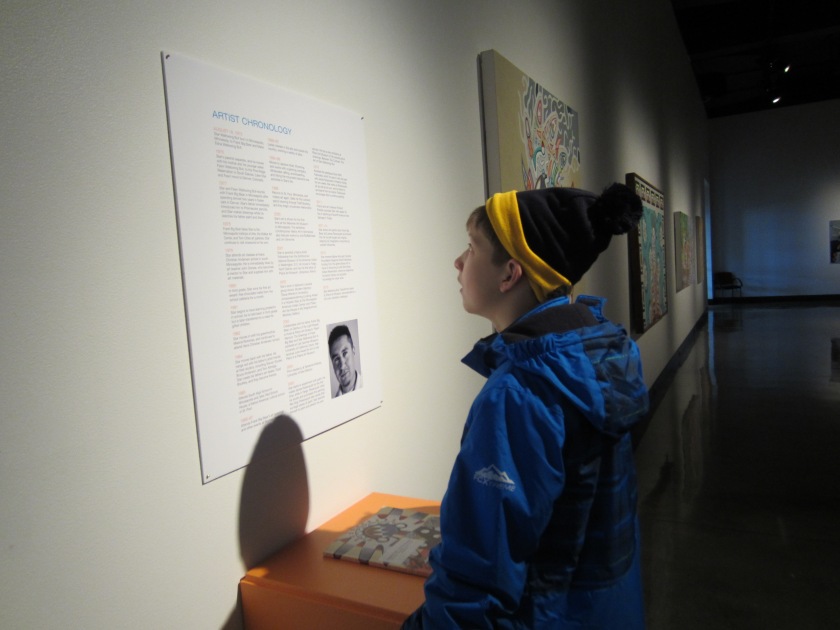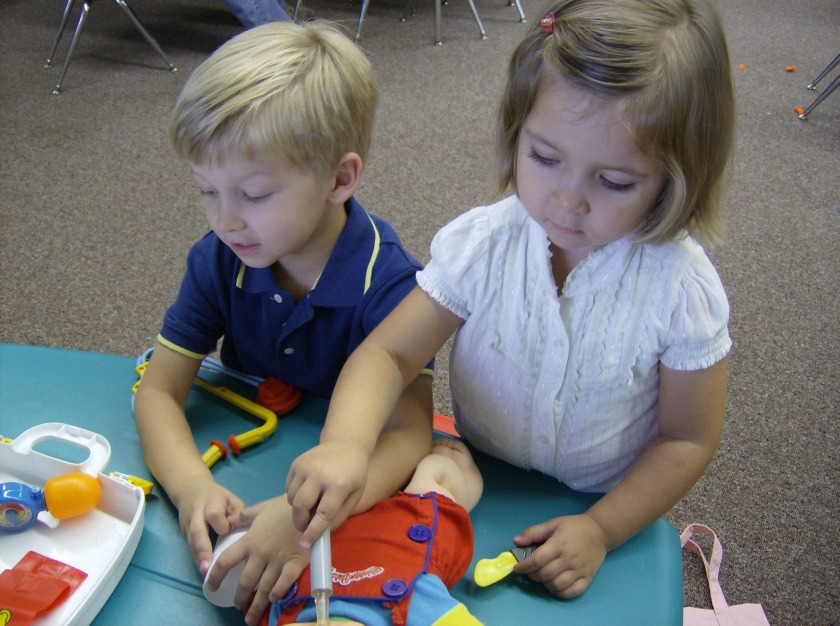
I feel like maybe I should write this post in installments—in fact, maybe over the next few weeks I’ll go into a little more about our experiences and thoughts on autism and medication. It’s obviously not an experience, story, or discussion that can be summed up in 1,000 words or less. It’s also a very emotionally charged one—some people feel really strongly for or against medication.
At this point in J’s life we feel that medication for his anxiety and ADHD symptoms are necessary. That might change. After all, he’s constantly changing. In fact, we saw Dr. R. a week and a half ago and after the nurse took J’s vitals she exclaimed, “Wow! He’s grown an inch and a half in TWO MONTHS.” It’s crazy. I’d noticed he’d been growing too, but I didn’t realize it had been so much so fast.
After our visit with Dr. R, she suggested that we might try upping J’s medication for his ADHD symptoms and thought that trying them over Christmas break would be a good idea. I came home and Steve and I talked about it and we decided to go ahead and try. J would be out of school for two weeks, and although we wouldn’t get a good reading on how it would affect his academic performance, we would be able to see how it affects his impulsivity and whether it increases those precious few seconds between a trigger and a reaction (the time where he can also apply some of the mindfulness strategies we practice every day). It would also give us a chance to see if J would have any negative side effects—in a safer, more manageable environment. After all, it would be harder for teachers (and more embarrassing for J) if he had more extreme emotional mood swings, stomach aches, etc. at school.
Two days into the new dosage, I started to doubt the timing. I had thought starting two days before Christmas would be best. It would give us two full weeks to see if 1) the medication was helping 2) the medications was helping but had undesirable side effects or 3) the medication didn’t seem to be doing anything at all. What I hadn’t thought about was that things would be totally different for J this week. Steve’s mom would be flying into town for Christmas, we wouldn’t have that fixed “school” routine, our eating habits and times would be all off, and then there was the whole Christmas Day experience, which J historically has had a really hard time with.
The first two days went fine. And then Christmas Day and Boxing Day happened. For those of you who are not familiar with ADHD medications, there’s this magical, bewitching hour (otherwise known as hell) that sometimes happens between 3:30-4:30pm when the medication wears off. Some kids have a severe reaction, a “coming down” or “rebound,” and they need to take another half dosage to ease the “coming down.” We went through this a year ago for a few days after initially starting the medication, but I forgot how bad it was. To say that J was an emotional wreck Christmas Day and the following day would be an understatement. His sleep for both of nights was terrible. I’m glad Steve’s mom was patient and understanding through the whole ordeal. She only gets to see him a few times a year, and I felt bad that she had to experience this side of him, but she was so supportive, calm, and patient. After those two days, Steve and I almost took him off the new dosage—but at the same time, I wasn’t sure if he was having meltdowns and sleep issues because of the medication, or because it was Christmas and his routine was off and grandma was here.
I started kicking myself for upping the dosage “at the wrong” time but then I thought: When is the right time?
After all, parenting has never been a controlled experiment.
The variables are constantly changing. Children are constantly growing—it’s their job. They grow tall, gain weight, lose weight, and hit puberty. Their body mass and levels of hormones are constantly fluctuating. They never sleep for the exact same amount of time every night and never eat the exact same caloric intake a day. No matter how “routine” our lives are, we never do the exact same things at the exact same time for the exact amount of time long enough to come up with any perfectly controlled results. There are 1,000s of factors every day that we can’t control and are always changing. People unexpectedly drop by or call. Things surprisingly go right or wrong. Nothing is 100% steady or predictable.
With J the variables were most definitely all mixed up. The meltdowns and “jitters” could be the medication. It could be the holiday and non-existent routine. It could be both. Or it could be something else altogether. Like being a teenager and waking up “on the wrong side of the bed.” A hormone swing.
Since we were in the holiday weekend, and didn’t have access to Dr. R’s office until Monday (it was bad, but I couldn’t justify it being an emergency call), we decided to stay the course. And Sunday was better and today was better too. In fact, I feel like J’s attention and impulse control have been really, really good today. And we haven’t had any “rebounds” or bewitching hours Sunday or today. I’ve been better at asking J how he’s feeling–before the tapering of the medication. “J how are you feeling? Are you feeling jittery? How’s your tummy? Are you feeling anxious?”
It’s hard to tell. Maybe today seemed better because I wanted it to seem better—because I needed today to be better. I’m not always an objective observer. But we’ll keep at it, and we’ll be keeping in touch with the doctor’s office along the way. In a few weeks we’ll be able to really see if it’s the right choice forward or not. As J always says, “tomorrow’s a new day!” And that really could mean anything.
Here are some pictures of our holiday with Sandy. It was great having her here! It’s great that she’s so supportive of us as well. She really gets to see the good, the bad, and the ugly, but that’s what families are for, right?








